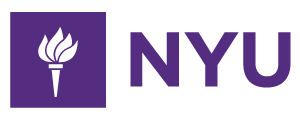Overview
An outbreak of epidemic diseases can test even the most resilient health system. The recent COVID-19 pandemic illustrated the devastating and far-reaching effects of a disease outbreak in any part of the world. We live in a world that is becoming more interconnected by the day. Despite the advancement of medical science, our world remains vulnerable to epidemics and the possibility of the next global pandemic cannot be ignored. Diseases very rarely completely disappear and there is always an emergence of new ones.
Introduction
High quality community engagement for Social and Behavior Change is required for relevant, timely and people- centred interventions in disease outbreaks and epidemics. Community engagement involves directly engaging with local populations in all aspects of decision-making, implementation, and policy through participatory approaches. It also involves improving transparency, accountability, and effective resource allocation through strengthened local capacities, community structures, and local ownership.
Global health challenges can be tackled with collaborative and coordinated responses. Pandemics know no borders: international collaboration and networking is vital to counter the threats posed by diseases.
Programme Objective
The programmes aims at empowering participants with skills, techniques and experiential discussions to leverage epidemiology, behavioural health, and communication strategies for effective disease prevention in global health challenges currently facing the East and Southern Africa region. They will further acquire a set of skills to create, design, and evaluate such communication programs in the field.
The course focuses on the challenges currently facing the East and Southern Africa region, including, but not limited to those related to the current cholera and ebola outbreaks, drought, and the ongoing COVID-19 pandemic, as well as adapting and strengthening health systems to prevent and/or manage current and future health emergencies.
Target Participants
The programme is targeted towards healthcare professionals from the National government, County governments, Faith-based organizations, Private for-Profit health organization, NGO’s among others.
This course is laso suitable students and public health professionals from government and international agencies, and other academic institutions.
The participants will together on teams – guided by mentors – to devise solutions that can easily be implemented to solve pressing real-world health problems.
Key Focus Areas
- Integrating three key public health disciplines: epidemiology, behavioural health/intervention research, and public health communication
- Foundational knowledge and skills for designing and implementing disease prevention and response strategies in outbreak situations
- Re-emergence and emergence of global epidemics and health challenges in humanitarian settings
- Exploration of how social and cultural practices influence the distribution of health and disease.
- Examination of factors contributing to social inequalities in health, risk management, perception of risk, health literacy, and community engagement.
Programme Delivery
each team will have a designated discussion board moderated by both faculty and peer mentors who have taken the Behavioral Communication Strategies for Global Epidemics (BCSE) course, offered in the New York University School of Global Public Health in the past.
Teams are expected to be in close communication throughout the course in order to effectively design their proposals.
A certificate of completion will be awarded to all participants that engage fully with the course.
World-Class Faculty
Faculty members (from the two schools) hold PhDs from leading universities and reflect different nationalities, giving them a unique perspective on today’s complex business landscape.
Through the integrated expertise, participants gain a comprehensive view of business, with the distinct needs of healthcare business leaders in Africa kept sharply in focus.
You will meet recognized thought leaders, skilled educators, groundbreaking researchers, among others. They will empower you to become the visionary leader in your career, your organization, and the global economy demand. The diversity among the facilitators gives you a chance to draw experience from different parts of the world.
About the Institute of Healthcare Management
The face of healthcare is dynamic and more complex than ever, with technological innovations, new treatments, new laws & regulations, and new types of healthcare service delivery models.
In addition to negotiating the day-to-day demands of a busy and complex organisation, healthcare delivery leaders need to evaluate and understand the impact of different healthcare delivery models and major service delivery programmes in specific disease areas.
The Institute of Healthcare Management has developed over time of programmes to help healthcare leaders and managers cope with this ever-changing landscape.
Executive Healthcare Programmes - Brochure Request Form
Developing Great African Leaders
Key Details
Dates: 12 – 19 January 2024
Mode: In-person
Cost (In-person): USD 15,000
For more information on the programme contact Geoffrey on
- Email: sbshealthcare@strathmore.edu/ gokora@strathmore.edu
- Phone: / +254 713 878 524 (Cell)








